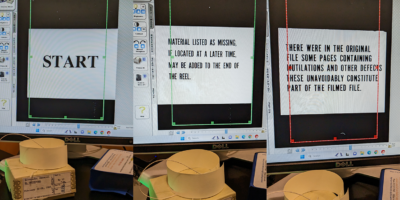By Chinonye Alma Otuonye
The first day of teaching is filled with an anticipation. It’s not much different than the giddy feeling one gets as a student when starting a new school year. However, in this case I am no longer the eager student but the anxious educator. As I headed to the D train to commence my journey to Lehman College last semester, I continued to think through the changing dynamics that had occurred as a result of a title. What did it mean to be a teacher as a graduate student?
I would be teaching an introductory course in Cultural Anthropology, but Anthropology was still a relatively new discipline for me. The head of imposter syndrome began to rear itself. The questioning of my own qualifications was something I had not simply experienced in the context of teaching; it had been a running problem for me as a black woman in graduate school.
Aside from my own worries about my inadequacies as an educator, despite my previous experience as a TA, I worried about the expectations my new students would have for and from me. While they likely had spent the summer not thinking much about the classes they had signed up for a semester ago, I had spent hours researching syllabi creation. Because Cultural Anthropology is such a broad discipline, I wanted them not just to go through what many understand to be the preeminent topics of discussion. I wanted them to see the applicability of anthropology to their own lives. Knowing my students were primarily from the Bronx, I sought to make race, class, and environment a central target of my class. These three topics were what I believed would elucidate the various other themes through anthropological inquiry.
While I had decided on the themes of interest for the course, the difficulty was choosing articles that would be interesting but also not too dense. Remembering my undergraduate days, stressing over what I deemed too much reading for courses that were not in my major field, I tried to cut down the reading list. The cutting and replacing was truly one of the most difficult things. With every article, there’s a new take away, a new understanding that could be helpful to elucidate the topics of the course. Unfortunately, I couldn’t include everything. I finally understood the age old perpetual “unfinishedness” of the syllabus.
While there were things I wished to some extent that I could push or skim over, I felt I had to give enough time and space for the early anthropologists like Spencer, Morgan, and Tylor. These early evolutionary theorists would allow us to set up the rest of the course to interrogate the racialized notions of civilization, progress, and history. The worry, however, was the denseness of these texts.
The accessibility of theory, for me, is an important aspect of both my syllabus making and my growing pedagogy. As a student I had sat in many classrooms, confused about the content of the works I was reading and its applicability to me. Theory, for me, is not simply a project in the abstract but a reflection of reality. As Stuart Hall notes, theory is a mode of interjecting, interpreting, and making sense of our reality, thus taking us back to that reality. In this way, I want my students to understand the ways in which theory could and should be useful for them in their own lives.
The relation with theory is then important in terms of the language used in the text. The variety of theoretical texts that have made use of obtuse, overly complicated terms have worked to exclude certain peoples from academia and have thus produced particular notions of theory making. In that way, the inclusion of more accessible media such as film and literature alongside academic texts is important in destabilizing ideas that theory can only be produced by particular bodies, in particular ways (i.e. the text). For that reason, in engaging with the question of social equality and race making, my students are asked to watch Cecil Emeke’s Strolling series: a beautiful cinemagraphic engagement with questions of race, diaspora, and the complexity of global identity formations. With any encounter with the text or digital mediums, it is important to allow for open discussion, where students can and should draw from their own lives as mechanisms of theory making and theory relations. Theory thus becomes a conversation that privileges negotiation and struggle rather than a fixed thing that one simply consumes and spits out. This will be the basis of my teaching. I want my students to be constantly engaging in conversation with each other, themselves, and me. It is an experiment in collective production. It is a hope for the coming semester and all semesters thereafter.
The first day, while filled with an anxiousness of the new, is one that is embedded in the production of a series of events. The first day rests upon a nervousness that stems from the work that has been done prior. While I had spent days and hours thinking through the pedagogy of syllabus making, the impending question was: What would my students think? Would this matter to them?










Leave a Reply